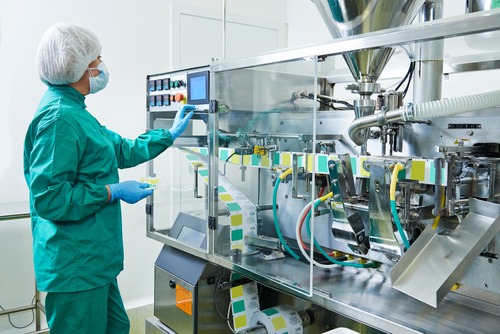
Pennsylvania’s chemical manufacturers were thanked Tuesday for their role in managing the COVID-19 pandemic and its effects over the last year.
From disinfectant wipes to ventilators, test tubes, and vaccines, chemicals are the starting point for almost every product used to manage COVID-19. Pennsylvania ranks eighth nationally in manufacturing. Chemicals are the top sector in the state’s manufacturing industry, exporting $8.9 billion in goods to supply the regional, national and global healthcare markets.
“This past year amplified how strong and resilient our essential workers are, especially in times of crisis – and chemical manufacturers are no exception,” Acting Secretary for the Pennsylvania Department of Health Alison Beam said. “This network of committed individuals has sacrificed a lot over the last year, and that does not go unnoticed. The Wolf Administration continues to navigate through this pandemic by getting more vaccine into arms and advocating to all Pennsylvanians to practice health habits like washing your hands, practicing social distancing, and wearing a mask as you continue to serve our communities across the commonwealth.”
Since March 2020, the chemical companies have worked as part of the crisis response to the pandemic, increasing production, retrofitting operations, and working with their communities to meet the demand for disinfectants, medical equipment, and intensive care tools.
Among the examples of their work are petrochemical company Braskem, where in March and April of last year, employees voluntarily lived at the company’s Marcus Hook facility for 28 days to manufacture polypropylene and produce nonwoven fabric to help meet the increased demand for N95 masks, hospital gowns, hoods, and sanitary wipes.
And in Lawrenceville, Pressure Chemical Co. supplied products to local distilleries to increase the region’s sanitizer supply and ramped up production of thermochromic goods used in disposable thermometers to meet increased demand for those products.
Another example is Arkema, a Plexiglass business in Bristol, coordinated efforts to maximize production at its sheet plants across the country to keep up with demand for sheets to protect cashiers and clerks who interacted with the public at retail spaces, pharmacies, gas stations, and other public-facing businesses. Additionally, the company repurposed a production line at its Genesco, N.Y. plant to manufacture 10,000 gallons of hand sanitizer solution – enough to fill 110,000 12 oz. bottles – which it then donated to four states, including Pennsylvania.
“The COVID-19 pandemic created extraordinary supply chain challenges for hospitals trying to secure the personal protective equipment and resources needed to respond to the crisis,” said Andy Carter, president and CEO of The Hospital and Healthsystem Association of Pennsylvania (HAP). “Seeing the urgent need for supplies, Pennsylvania’s state government, manufacturing, and life sciences organizations came together to retool their operations and support the health care community during this difficult time. This collaboration early on during the pandemic made a huge difference in the availability of resources, which directly helped our patients and health care workers; and it will pay dividends in the future.”
Many of the manufacturers also donated products to their communities. In Aston, #M’s manufacturing team donated boxes of safety glasses to Einstein Medical Center and MossRehab in Philadelphia. Albemarle in Tyrone donated 40 liters of Isopropyl Alcohol to their local Tyrone Community Pharmacy for hand sanitizer production, as well as purchasing and donating hand sanitizer to AMED, the local ambulance service; N95 masks to the Tyrone Police Department; and goggles and face shields to the Tyrone Hospital.
“It’s often an afterthought where the products we use every day originate until we can’t get them. This pandemic has demonstrated how critical the role is that these companies play in the health and safety of our communities and how fortunate we are to have a strong base here in Pennsylvania, reducing our reliance on imported products,” said Pennsylvania Chemical Industry Council President, Abby Foster. “We thank them for their leadership and innovation in getting the job done safely in extraordinary circumstances to meet demand while also caring for their local communities.”